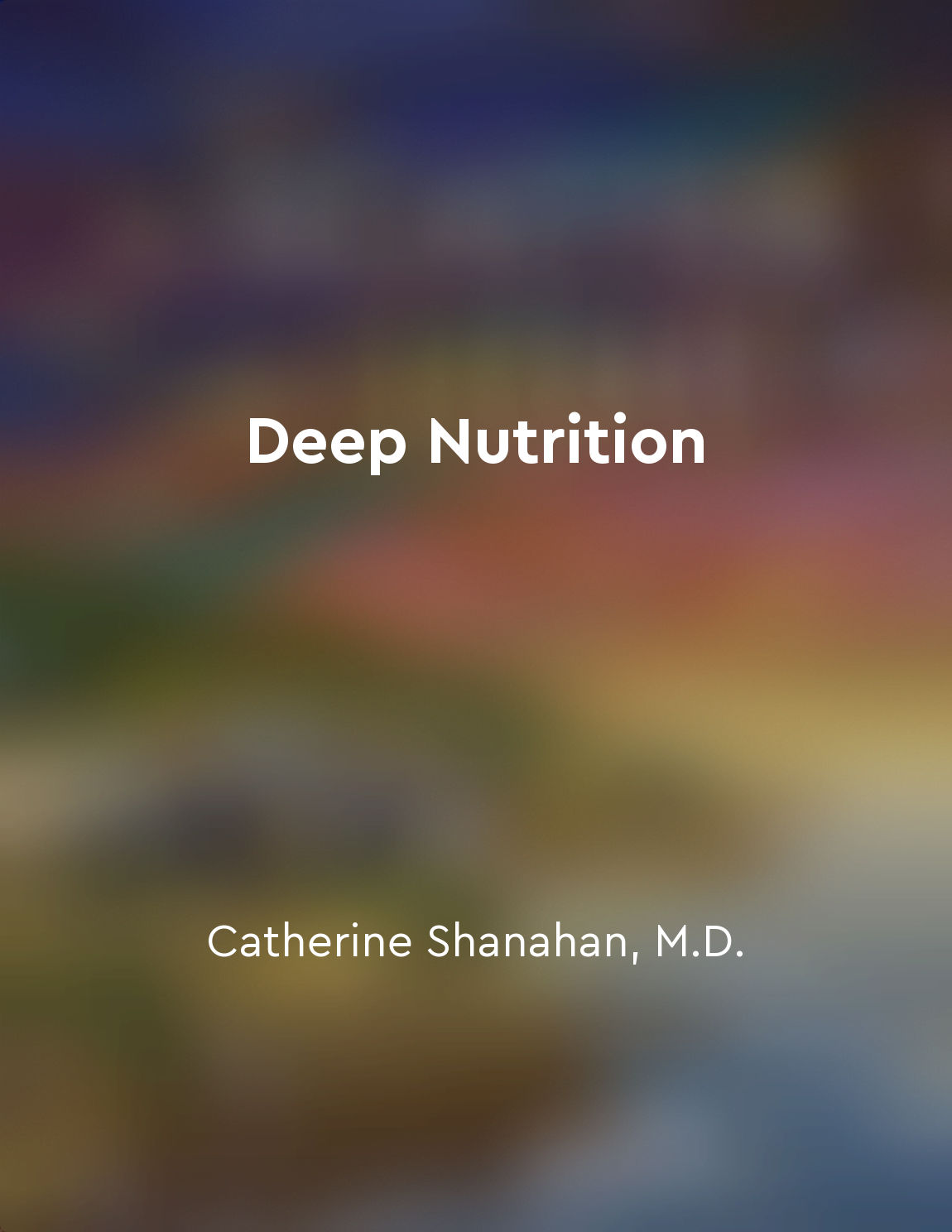Including fermented foods in your diet can improve digestion and nutrient absorption from "summary" of The Paleo Healing Cookbook by Rachael Bryant
Fermented foods have been a part of our diet for thousands of years, and for good reason. They are filled with beneficial probiotics that can help improve digestion and nutrient absorption. When we consume fermented foods, we are introducing healthy bacteria into our gut, which can help restore balance and promote overall gut health. These probiotics work to break down food more effectively, making it easier for our bodies to absorb essential nutrients. This can be especially helpful for those with digestive issues or nutrient deficiencies. By including fermented foods in our diet, we are essentially giving our digestion a boost and ensuring that we are getting the most out of the foods we eat. In addition to improving digestion and nutrient absorption, fermented foods can also help strengthen our immune system. A large portion of our immune system is located in our gut, so by supporting gut health with probiotic-rich fermented foods, we are also supporting our overall immune function. This can help us stay healthy and ward off illness more effectively. Furthermore, fermented foods can help reduce inflammation in the gut, which is often a root cause of many digestive issues. By promoting a healthy balance of bacteria in the gut, fermented foods can help calm inflammation and create a more hospitable environment for digestion and nutrient absorption to take place.- Including fermented foods in our diet can have a wide range of benefits for our health. From improving digestion and nutrient absorption to supporting our immune system and reducing inflammation, these probiotic-rich foods can play a key role in promoting overall wellness. So next time you're at the grocery store, consider picking up some sauerkraut, kimchi, or kefir to incorporate into your meals and reap the benefits of these traditional and nourishing foods.
Similar Posts
Incorporating a variety of colors in your diet ensures a range of nutrients
When it comes to nutrition, the colors of the foods you eat can tell you a lot about the nutrients they contain. Different colo...

Choose pastureraised meats and wild-caught fish
When it comes to choosing the meats and fish you eat, quality matters. Pasture-raised meats and wild-caught fish are superior c...
Berries are a good lowsugar fruit option
Berries are a good choice when it comes to selecting fruits that are low in sugar. Contrary to popular belief, not all fruits a...
Tracking food intake can provide valuable insights
When it comes to optimizing your health and achieving your wellness goals, tracking your food intake can be a valuable tool. By...

Avoid processed and sugary foods
When it comes to managing your mental health through diet, one of the key principles to follow is steering clear of processed a...
Celebrate your progress and achievements along the way to stay motivated and inspired
It is essential to recognize and appreciate the progress we make on our journey towards better health. By celebrating our achie...

Exercise plays a crucial role in maintaining a healthy gut
Exercise, as it turns out, is not just about shaping your physique or boosting your energy levels. It also exerts a profound in...
Drinking fresh vegetable juices can aid in reducing inflammation
One of the most powerful ways to combat inflammation in the body is by incorporating fresh vegetable juices into your daily die...
Crop monocultures deplete soil nutrients and harm biodiversity
The problem of monoculture is that it represents an extreme form of simplification. When you plant a single crop over a large a...
Balanced nutrition during nonfasting periods is crucial
Balanced nutrition during nonfasting periods is crucial for maintaining overall health and well-being. This concept is at the c...


